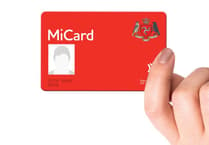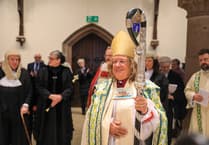The time limit on how long MHKs have to elect a new chief minister after the general election has been extended.
Voters have no direct say in who the next chief minister will be. He or she will be elected by MHKs after the September 23 general election.
Previously, the rules stated the House of Keys had to sit 10 to 14 days after the general election, but at their final sitting MHKs voted to extend the limit to 17 to 21 days.
That followed a debate in which the real power of the chief minister was questioned and pictures painted of deals being brokered where ministerial positions were offered in exchange for votes.
The debate was started by Chris Thomas (Douglas Central) who wanted to allow up to a month, but MHKs supported a compromise amendment from Chris Robertshaw (Douglas East)
September will be the first time that the election of the chief minister is solely in the hands of the House of Keys, rather than the Legislative Council also having a say.
Mr Thomas said he wanted to make sure there was enough time to hold a proper debate involving chief minister candidates.
’This will potentially enrich the focus on policy, enhance the connection between the election of the MHKs that have the privilege to serve in this place after the general election,’ he said.
It would help address a ’democratic deficit’ where the electorate votes for individual candidates’ policies and the power of government was later transferred to the Council of Ministers, which was nominated by the successful chief minister.
’I want to coin a phrase because what we need to be thinking about is that we do not like party politics but perhaps mandate politics or manifesto politics or programme politics or working together politics. We need to have more of an idea of where we are going when we elect the chief minister and put in place the programme for the government.’
His motion was seconded by Claire Christian (Douglas South), who said the electorate vote for constituency MHKs on the basis of their manifestos.
’They entrust in them to carry out their election pledges throughout their term and having a government which is most aligned to their policies will better enable them to succeed,’ she said.
’This motion will give elected MHKs more time to deliberate national priorities and a programme for government, which will allow the focus to hinge more on policy and the best person to lead that policy.’
Mr Robertshaw tabled his amendment saying that while allowing up to 30 days was attractive, it was not specific enough in the timescale of when to hold the election of a chief minister. He proposed narrowing it down to 17 to 21 days, which gave less room for argument over the exact date.
’There is so much that new members have to embrace within such a short period of time can they possibly focus the important time required within that incredibly short period (10-14 days) on who in their view should be considered as the next chief minister?’
Lawrie Hooper (LibVannin, Ramsey) said he had not heard an argument of how extending time helped the voter and pointed out a previous attempt to demand MHKs who wanted to be chief minister declared their ambition ahead of the general election had been rejected.
He dismissed the idea that a chief minister was able to impose their policy on the Council of Ministers and Tynwald.
’That is not the reality,’ he said. ’Ministers fight like cats in a sack. We all know this. Anything that comes out of CoMin is a consensus. It has got to be by agreement. It certainly isn’t the chief minister dictating to his eight ministers. That would never work.’
Daphne Caine (Garff) was unimpressed with the lengthening of timescale.
She said: ’The democratic deficit is there but unless the month period was to enable public opinions or the public election of a chief minister, I do not really see how the additional time this would extend it by would benefit people or inform us what the public wanted.’
Julie Edge (Onchan) however welcomed the extra time and backed the amendment.
She recalled her experience after the 2016 election.
’I have seen rooms with doors getting opened, people going in, promises being made,’ she said. Such promises included the offer of ministerial positions in exchange for support in the chief minister election.
MHKS voted 14 to 10 in favour of Mr Robertshaw’s amendment, which was then carried as the main resolution.





Comments
This article has no comments yet. Be the first to leave a comment.